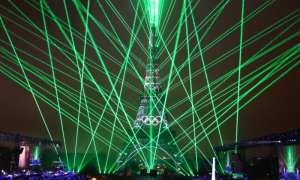LONDON: The statements by Ireland, Spain and Norway to recognize Palestinian state will put pressure on other European countries including the UK, France and Germany to follow suit in supporting Palestinian self-determination.
Most countries – about 139 in total – formally recognize the Palestinian state. Still, the decision by several European countries to formally recognize the existence of a Palestinian state does not overcome the fact that this ambition still faces enormous obstacles.
But the statements by Ireland, Spain and Norway will put pressure on other countries in Europe – including the UK, France and Germany – to follow suit in supporting Palestinian self-determination.
“This is extremely important,” BBC quoted one Arab diplomat as having said after the Wednesday’s development. “It reflects European frustration that the Israeli government refuses to listen and it’s putting pressure on the EU to follow suit.”
On the other hand, Israeli ministers insist it will embolden Hamas and reward terrorism, further reducing the chances of a negotiated settlement.
Palestine currently has a sort of enhanced observer status at the UN, which gives it a seat but not a vote in the assembly.
It is also recognized by various international organizations including the Arab League and the Organization of Islamic Cooperation.
A minority of European countries already recognize a Palestinian state. These include Romania, the Czech Republic, Hungary, Poland, Slovakia and Bulgaria, which adopted the position in 1988; and others including Cyprus, Sweden and Malta.
But many European nations – and the United States – say they will recognize a Palestinian state only as part of a long-term political solution to the Middle East conflict.
This is often referred to as the “two-state solution”, where both Israelis and Palestinians agree to have their own states with their own borders.
European countries and the US differ on when they should recognize a Palestinian state.
Ireland, Spain and Norway say they are doing so now to start the political process. These countries are also responding to domestic political pressures to show greater support for the Palestinians.
In the past, the position of many Western countries was that Palestinian statehood should be the price of a final peace agreement.
But Lord Cameron, the UK foreign secretary, and some other European countries have changed their positions in recent months, saying recognition of Palestinian statehood could come sooner to help jump-start momentum for a political settlement.
In February, French President Macron said: “Recognition of a Palestinian state is not a taboo for France.
And earlier this month, France backed Palestinian UN membership in a General Assembly vote.
The US has discussed the issue privately with European allies, but is more cautious and wants a clearer picture of what the policy would mean in practice.
The problem is that the recognition of a Palestinian state is largely a symbolic gesture unless it also deals with the crucial accompanying issues.
What should the boundaries be? Where should the capital be? What should both parties do about it first?
These are complex questions that have not been satisfactorily agreed upon – or even answered – for decades.
As of today, several other countries in Europe believe that there should be a Palestinian state.
























